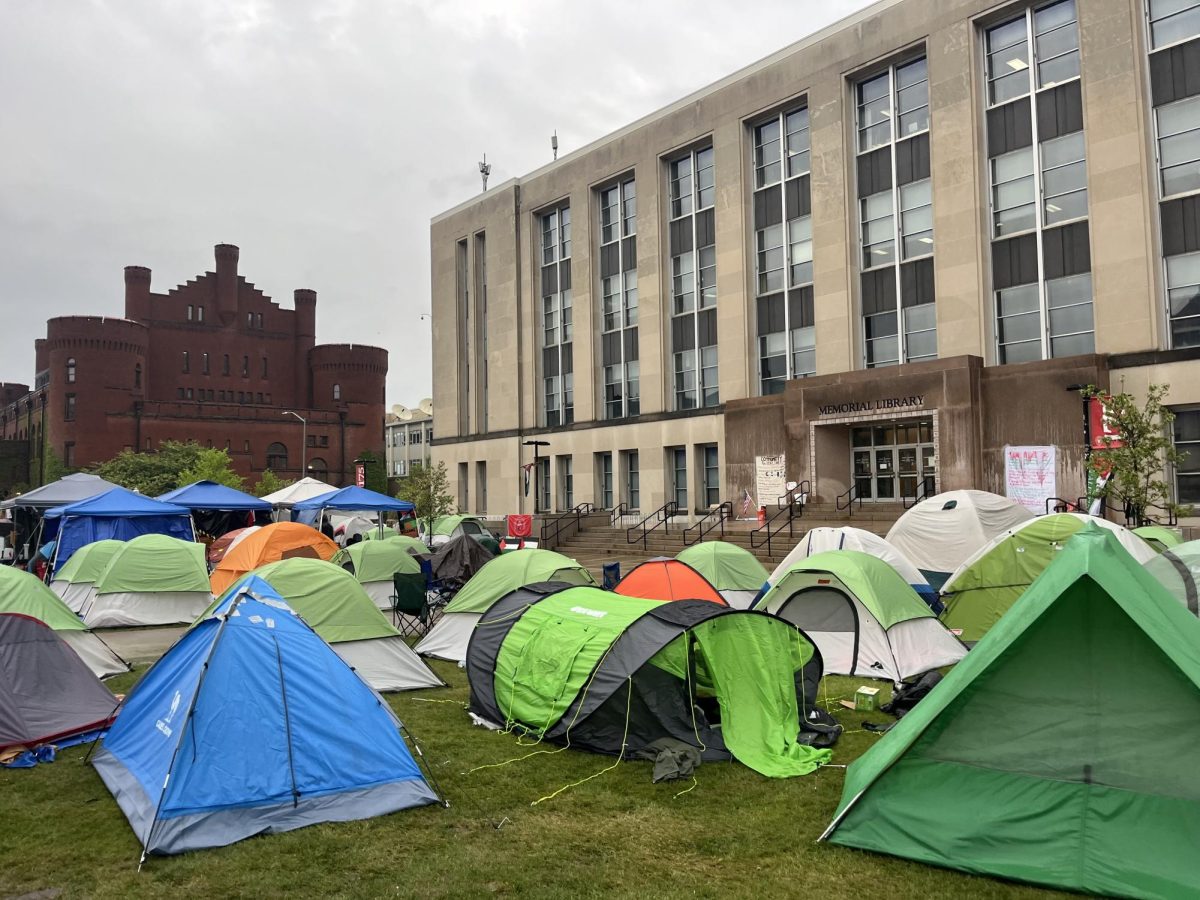[media-credit name=’JEFF SCHORFHEIDE/Herald photo’ align=’alignnone’ width=’648′] [/media-credit]With unusually warm weather in December and January, some Madison residents wondered if Lake Mendota would ever freeze.
[/media-credit]With unusually warm weather in December and January, some Madison residents wondered if Lake Mendota would ever freeze.
But the lake finally froze completely Jan. 20 after weather conditions created difficulties for ice to form on the lake for the last two months.
"Almost every year, I get called up and asked when the lake is going to freeze," said John Magnuson, professor emeritus of limnology at the University of Wisconsin. "If you can tell me what the weather will be like in two months, I could tell you."
Magnuson said Lake Mendota was finally able to freeze after temperatures dropped and winds calmed down.
Wisconsin State Climatology Office manager Lyle Anderson said the lake froze at a particularly late date — the lake's first freeze this year is the second-latest date in the office's recorded archives: The latest freeze happened Jan. 30, 1932.
Magnuson said records have been kept about the lake's freeze-over dates since the 1850s.
"When I first moved to Madison in the late 1960s, the 18th of December was the average date of ice cover," Magnuson said. "This is a very unusual year."
In comparison, Magnuson added, the average date of freezing for Lake Mendota in the last decade has been around Christmas.
While temperatures in Madison have been warmer, other factors have contributed to the late freeze, Magnuson said.
Along with the ice's natural sensitivity to temperature, Magnuson said the El Niño current — where warm waters "pile up" in the Western Pacific Ocean — had some effect on Lake Mendota's freezing.
The limnology professor added global warming affected the late freeze, though it is difficult to argue for worldwide temperature rises when lakes such as Mendota vary in freezing dates from year to year.
But when Magnuson looked at overall numbers, the trend seems to support an increased warming.
"It's not a catastrophe if it freezes later," Magnuson said. "But it indicates a general pattern of warming that's occurring around the world."
However, Anderson said it's not the job of the state's climatology office to make "sweeping statements" about global warming based on ice cover.
The climatology office is currently reviewing their archives to find out how exactly people in the past measured ice cover, in order to make an appropriate analysis on whether there is a trend in later freezing dates.
One thing is certain, though: At least one activity dependent on the lake's ice has been affected this year — ice fishing.
Keith Brassington, an employee at local bait store D&S Bait, Tackle and Archery, said while the lake is now frozen, the ice is still not safe enough for fishing.
"There's snow cover, which insulates the ice and makes it harder for the ice to freeze down," Brassington said. "There's two inches in the middle of the lake, and people are trying to get out there."
The Dane County Sheriff's Office agreed the lake might be dangerously thin for anyone wanting to venture onto the ice.
In the past week, the county patrol has dealt with three separate incidents of people falling through the ice, according to Elise Schaffer, the Dane County Sheriff Office's public information officer.
"In the majority of these cases, the people were able to get to safety on their own or with the help of other fishermen," Schaffer said. "It is dangerous. In fact, it doesn't matter how cold it's been, we never declare the ice safe."
Schaffer said people could misjudge the thickness of the ice, which might be thinner than they realize.
While the ice on Lake Mendota is intact for now, Magnuson said the strongest effect of the late freezing is the winter spirit in Madison.
"All the kind of winter activities that we associate with the ice are not there, and they aren't catastrophes, but we're losing them," he added. "The winter climate helps with our personal sense of place."














